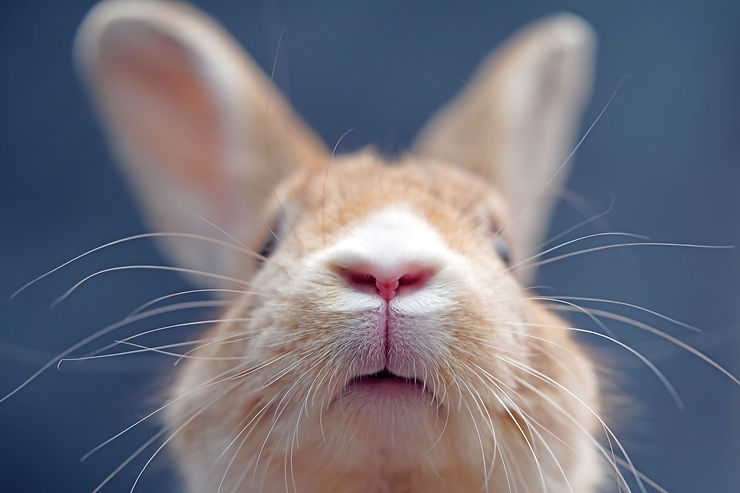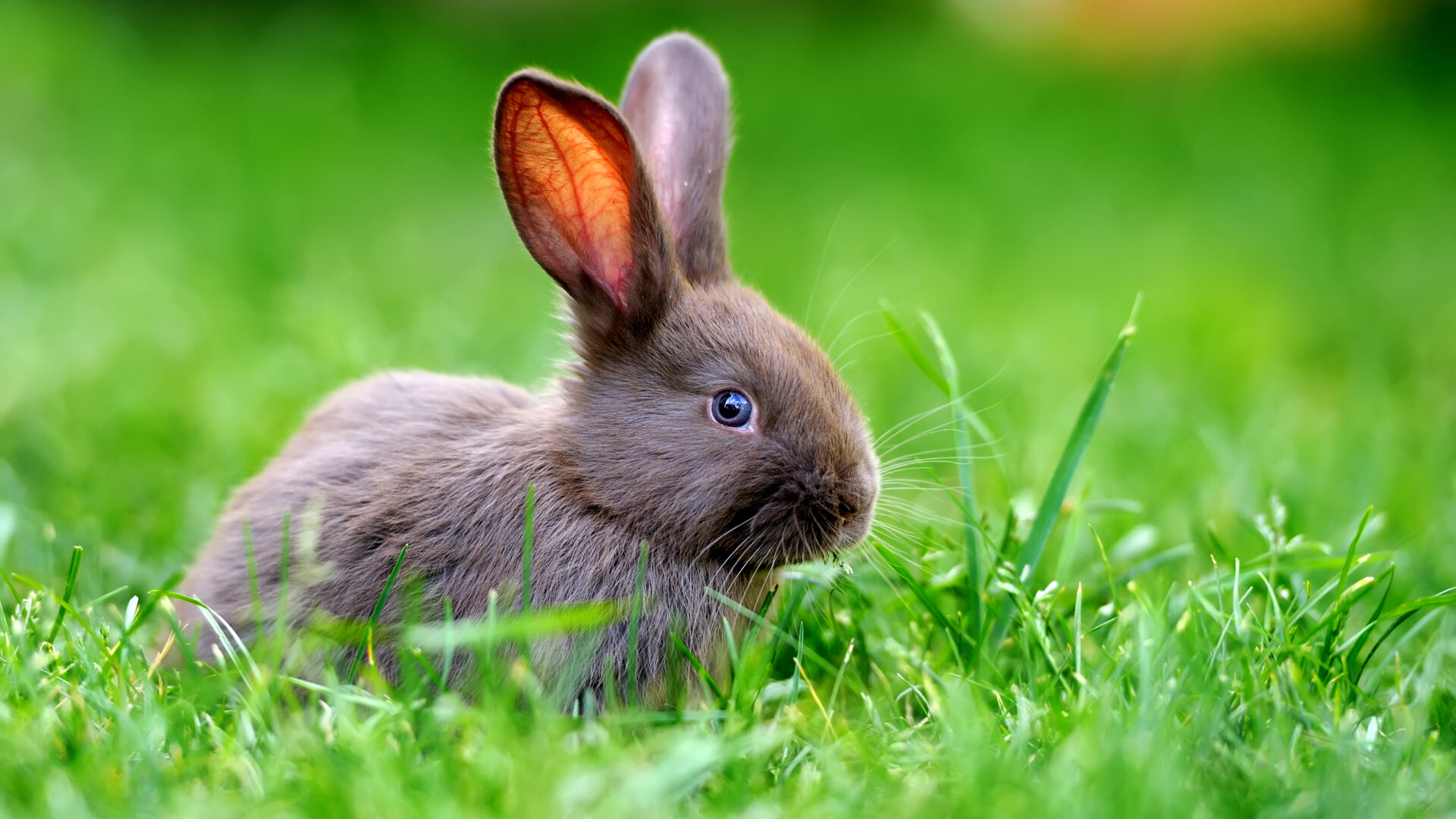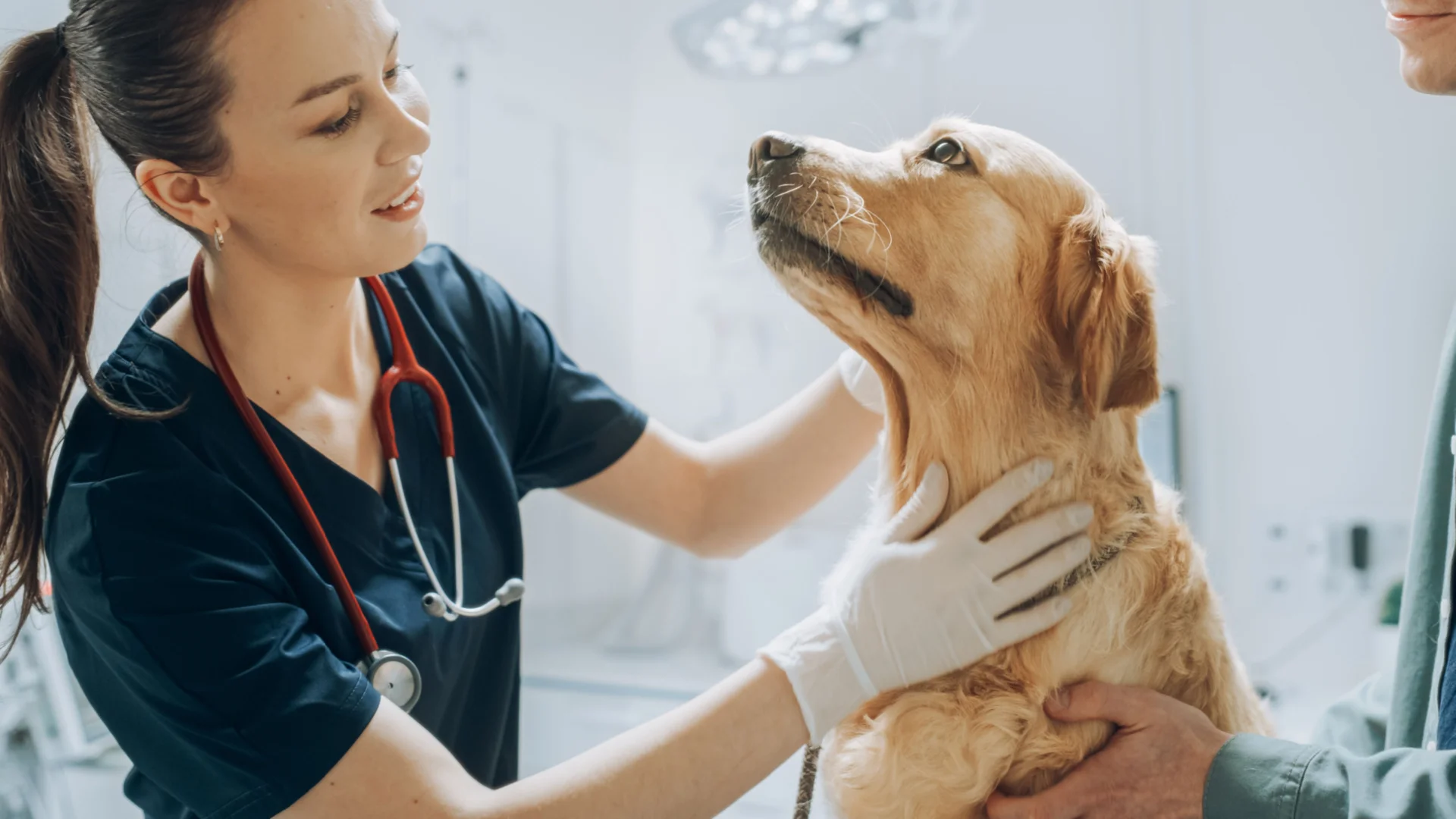Is the Nasal Microbiome the Secret to Treating Nasal Infections in Pet Bunnies?
Did you know that one of the most common illnesses in pet bunnies has to do with arguably the cutest part- their nose? That’s right, bunny noses are actually more susceptible to infection or inflammation simply because of the way they are shaped. [1] Not only that but since bunnies cannot breathe through their mouths, if their nose becomes stuffy (unlike other animals), nasal inflammation in bunnies creates a pretty common and possibly life-threatening issue!

Nasal inflammation and respiratory infections in rabbits, known as Chronic Rhinosinusitis (CRS), have many symptoms that bunny owners and veterinary professionals should look out for.
What Are the Symptoms of Chronic Rhinosinusitis in Bunnies?
- Sneezing
- Runny/wet nose (nasal discharge)
- Reduced airflow/heavy breathing
- Slobbering or excessive saliva
- Discharge from the eyes or other parts of the face
- Nose bleeding
If your bunny is experiencing these symptoms, seeking medical guidance for treatment is essential! But, to develop the BEST treatments for CRS in bunnies, we need to first understand the cause of CRS.
What Causes CRS in Pet Bunnies?
While no study to date has identified changes to the fungal mycobiome of bunny noses, particular infectious fungi have been shown to contribute to nasal inflammation in other animal models, including Alternaria spp. [6]
Identifying Bacteria That Contribute to CRS in Bunnies
For one, not all bacteria grow sufficiently well in the lab conducting the PCR technique.
Thus, while culture methods can effectively identify pre-determined, common pathogens, using this technique makes it impossible to detect uncommon or novel bacterial or fungal markers.
Effective and Accurate Diagnostic Tools for Nasal Infections in Pet Bunnies
How to Treat Rabbit CRS Infections
Typical treatments to treat CRS that target bacteria, like antibiotics, have been widely used to eliminate pathogens contributing to the infection. However, while antibiotic treatments have been successful, veterinary professionals must consider two important factors that could impact their efficacy.
1. It is essential to prescribe the most appropriate antibiotic to accurately target the specific bacterial marker contributing to the respiratory infection.
This can be difficult to do when using culturing methods, but fortunately, with the MiDOG test results, veterinary professionals can prescribe the right antibiotic.
2. Antibiotics can inadvertently alter the microbiome or mycobiome and often lose effectiveness over time.
|
Bacteria |
AMR |
|---|---|
|
Mycoplasma |
Tomacrolides, Fluoroquinolones, Pleurmutilins, & Tetracyclines [8] |
|
Campylobacteraceae |
Tetracyclines [10], Fluoroquinolone [11] |
|
Moraxella |
Vancomycin, Ampicillin & Trimethoprim [12] |
While respiratory infections can impact the lives of pet bunnies significantly, knowing what to look for in terms of symptoms is the first step to treating these furry friends!
Working with your veterinary professional and using NGS technology, like the MiDOG All-in-One Microbial Tests, is a great first step in identifying the root cause of the respiratory infection so you can optimize your treatment plan and help your bunny best!
References
-
Xi J, Si XA, Kim J, Zhang Y, Jacob RE, Kabilan S, Corley RA. Anatomical Details of the Rabbit Nasal Passages and Their Implications in Breathing, Air Conditioning, and Olfaction. Anat Rec (Hoboken). Jul 2016;299(7):853-68. doi:10.1002/ar.23367
-
Zhao YC, Bassiouni A, Tanjararak K, Vreugde S, Wormald PJ, Psaltis AJ. Role of fungi in chronic rhinosinusitis through ITS sequencing. Laryngoscope. Jan 2018;128(1):16-22.
-
Cho DY, Hunter RC, Ramakrishnan VR. The Microbiome and Chronic Rhinosinusitis. Immunol Allergy Clin North Am. May 2020;40(2):251-263.
-
Cho DY, Mackey C, Van Der Pol WJ, et al. Sinus Microanatomy and Microbiota in a Rabbit Model of Rhinosinusitis. Front Cell Infect Microbiol. 2017;7:540.
-
Lux CA, Johnston JJ, Waldvogel-Thurlow S, et al. Unilateral Intervention in the Sinuses of Rabbits Induces Bilateral Inflammatory and Microbial Changes. Front Cell Infect Microbiol. 2021;11:585625.
-
Didehdar M, Khoshbayan A, Vesal S, Darban-Sarokhalil D, Razavi S, Chegini Z, Shariati A. An overview of possible pathogenesis mechanisms of Alternaria alternata in chronic rhinosinusitis and nasal polyposis. Microb Pathog. Jun 2021;155:104905.
-
Damerum, A., Malka, S., Lofgren, N., Vecere, G., & Krumbeck, J. A. (2023). Next-generation DNA sequencing offers diagnostic advantages over traditional culture testing. American Journal of Veterinary Research, 84(8), ajvr.23.03.0054. Retrieved Sep 21, 2023
-
Gautier-Bouchardon, A. V. (2018). Antimicrobial resistance in Mycoplasma spp. Microbiology spectrum, 6(4), 6-4.
-
Mitchell, J. D., McKellar, Q. A., & McKeever, D. J. (2012). Pharmacodynamics of antimicrobials against Mycoplasma mycoides mycoides small colony, the causative agent of contagious bovine pleuropneumonia. PloS one, 7(8), e44158.
-
Létourneau, V., Nehmé, B., Mériaux, A., Massé, D., Cormier, Y., & Duchaine, C. (2010). Human pathogens and tetracycline-resistant bacteria in bioaerosols of swine confinement buildings and in nasal flora of hog producers. International journal of hygiene and environmental health, 213(6), 444–449.
-
Dai, L., Sahin, O., Grover, M., & Zhang, Q. (2020). New and alternative strategies for the prevention, control, and treatment of antibiotic-resistant Campylobacter. Translational research : the journal of laboratory and clinical medicine, 223, 76–88.
-
Berrocal, A. M., & Gaitan, J. R. (2008). MORAXELLA 372.02. In Roy and Fraunfelder’s Current Ocular Therapy (pp. 52-53). WB Saunders.
Categories: Exotic Pets, Rabbits, Respiratory Infection

